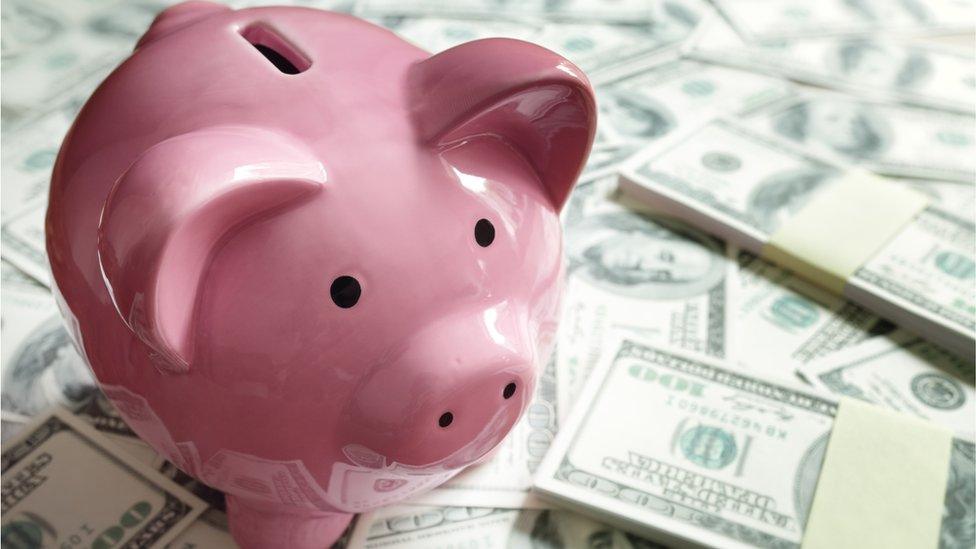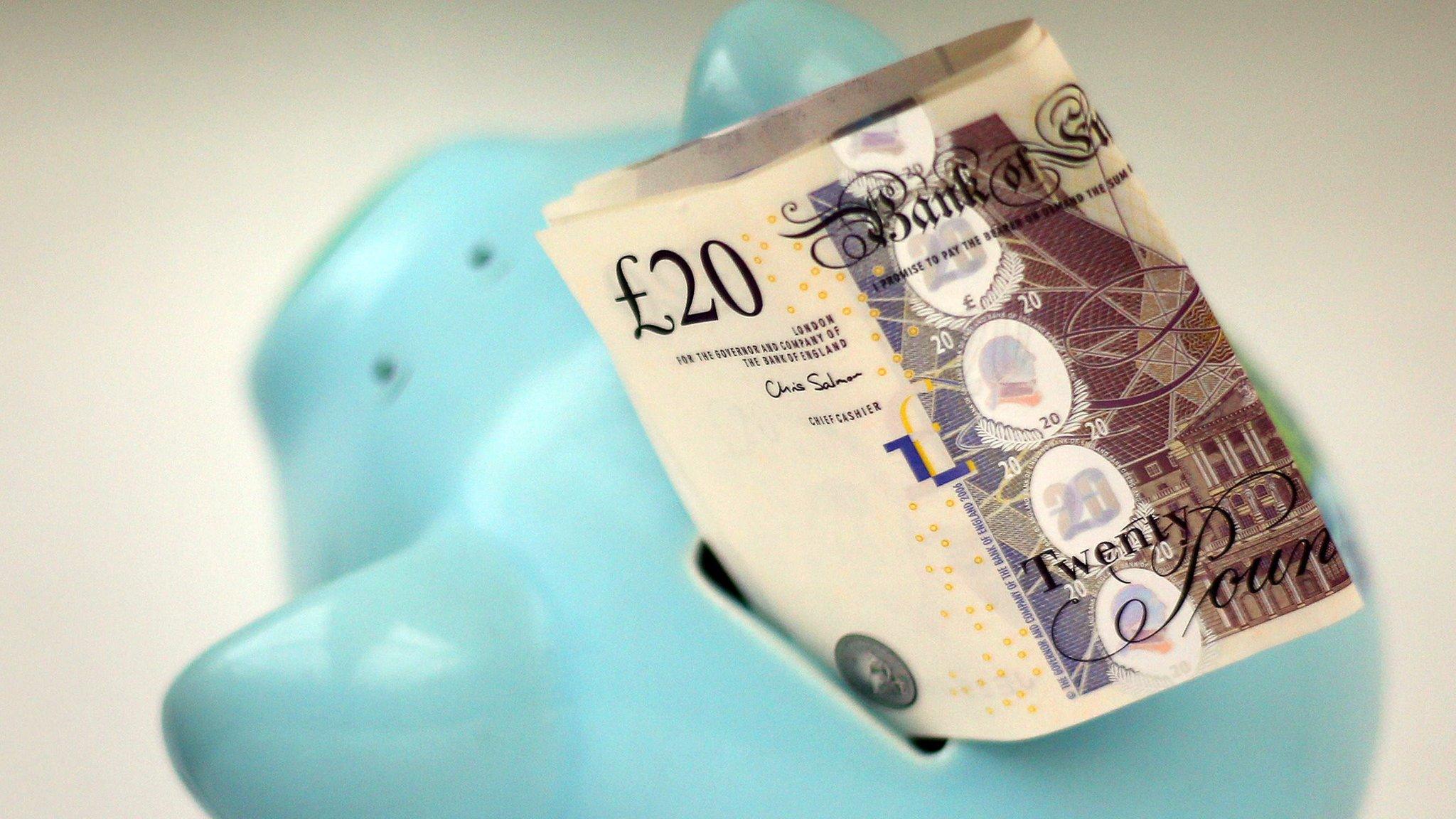Goldman Sachs wants your piggy bank
- Published

A new savings bank hits the UK next week, but it's far from being a new company.
Marcus is part of the mighty Goldman Sachs - the US investment bank once dubbed the "vampire squid".
Its move into the UK comes as no surprise. Its US savings bank, which was set up two years ago, has been a big success, attracting $20bn (£15bn) of savings.
But will the bank's launch be a damp squib, or mark a sea-change for the UK savings market?
Marcus is named after Marcus Goldman who founded Goldman Sachs in 1869.
The company has promised it will "offer savers an easy-access online savings account that pays a competitive rate of interest on balances from £1 to £250,000."
It says customers will be able to make as many withdrawals as they like - "free of charge and with no penalty".
The bank also says it is "aiming to offer UK savers a consistently competitive interest rate".
But all that is just pre-promotion. When the bank's first savings account launches next week it will succeed or fail purely on the interest rate it offers.
When a pilot account was launched to staff last month, the rate offered was 1.5%.
If the same rate is offered to the public, that will be enough to catapult it to the top of the best-buy tables, ensuring instant demand from savers.
ING Direct and Icesave
That is a long-established route for overseas banks: they effectively buy market-share by offering the best savings rate.
But what happens next is the interesting bit - will the bank still be around after building up a big market-share?
That hasn't always been the case in the past. Where are Dutch-owned ING Direct or Icesave from Icelandic-owned Landsbanki?

The former attracted millions of savers before slipping out of the best-buy tables and into obscurity. It was eventually bought by Barclays a few years ago.
The latter collapsed in the financial crisis, leaving the British government to bail out the billions of pounds that UK savers had stashed in it (although that was later repaid by Iceland's government).
The warning is clear. But savers eager for better returns are likely to ignore it.
If they do, that could leave Marcus moving ahead with plans to launch a credit card and even a traditional current account in the future, eventually becoming a UK banking force.
Marcus of success?
There have been almost 40 new entrants to the savings market in the decade since the financial crisis, according to James Blower, founder of The Savings Guru.
"Every single one has established itself by offering 'best buy' interest rates. I see no reason why Marcus will be different," he says.
"If it launches with 1.5% it will provide a huge jolt to the market, given that the best rate in the market is currently the 1.37% from Kent Reliance."
That could force rivals such as Virgin, Renault-backed RCI, Ford Money and Shawbrook - all stalwarts of the best buy tables - to respond by increasing their own rates, which would be good news for savers.

One of the barriers to success is trust, warns Anna Bowes, co-founder of Savings Champion.
"The issue that many challenger banks have on launch is that as unrecognised names, it can take quite some time for savers to trust that they are legitimate. And it's expensive for them to gain traction," she says.
But the fact that Marcus comes from the powerful investment bank Goldman Sachs should give it an advantage, she adds.
Sarah Coles, personal finance analyst at Hargreaves Lansdown agrees.
"With the clout of Goldman Sachs, Marcus should keep the rest of the challengers on their toes, which is excellent news for savers," she says.
She says that many competitive easy access savings accounts come with strings attached - such as a limited number of withdrawals or a bonus for the first year.
"A competitive easy access account without these caveats would be very welcome among savers," she says.
- Published13 September 2018

- Published2 August 2018

- Published25 July 2018
